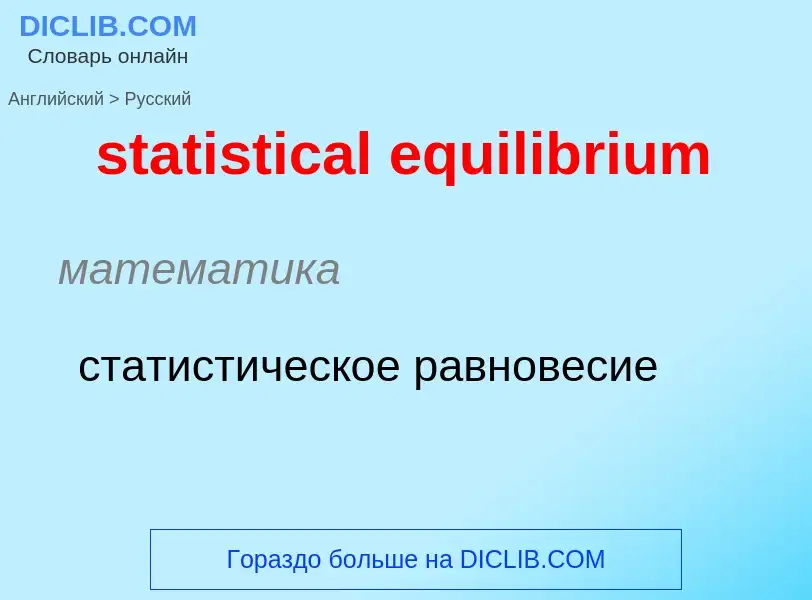Übersetzung und Analyse von Wörtern durch künstliche Intelligenz ChatGPT
Auf dieser Seite erhalten Sie eine detaillierte Analyse eines Wortes oder einer Phrase mithilfe der besten heute verfügbaren Technologie der künstlichen Intelligenz:
- wie das Wort verwendet wird
- Häufigkeit der Nutzung
- es wird häufiger in mündlicher oder schriftlicher Rede verwendet
- Wortübersetzungsoptionen
- Anwendungsbeispiele (mehrere Phrasen mit Übersetzung)
- Etymologie
statistical equilibrium - Übersetzung nach russisch
математика
статистическое равновесие
Definition
Wikipedia
In physics, statistical mechanics is a mathematical framework that applies statistical methods and probability theory to large assemblies of microscopic entities. It does not assume or postulate any natural laws, but explains the macroscopic behavior of nature from the behavior of such ensembles.
Statistical mechanics arose out of the development of classical thermodynamics, a field for which it was successful in explaining macroscopic physical properties—such as temperature, pressure, and heat capacity—in terms of microscopic parameters that fluctuate about average values and are characterized by probability distributions. This established the fields of statistical thermodynamics and statistical physics.
The founding of the field of statistical mechanics is generally credited to three physicists:
- Ludwig Boltzmann, who developed the fundamental interpretation of entropy in terms of a collection of microstates
- James Clerk Maxwell, who developed models of probability distribution of such states
- Josiah Willard Gibbs, who coined the name of the field in 1884
While classical thermodynamics is primarily concerned with thermodynamic equilibrium, statistical mechanics has been applied in non-equilibrium statistical mechanics to the issues of microscopically modeling the speed of irreversible processes that are driven by imbalances. Examples of such processes include chemical reactions and flows of particles and heat. The fluctuation–dissipation theorem is the basic knowledge obtained from applying non-equilibrium statistical mechanics to study the simplest non-equilibrium situation of a steady state current flow in a system of many particles.


